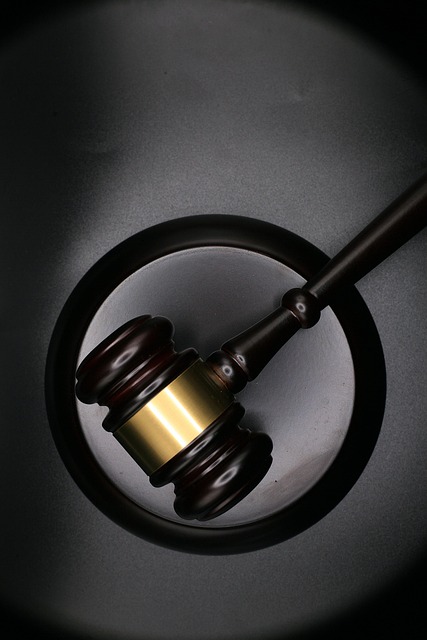Building a robust defense against false accusations is critical in high-stakes white-collar and economic crime cases, where outcomes can be severe. This involves meticulous fact-finding, gathering counter-evidence, and crafting compelling narratives to challenge the accuser's motive and evidence. Legal strategies should focus on preserving relevant documents, communications, and materials, while understanding the case within its business context. Skilled legal representation is essential for navigating investigations by law enforcement agencies, who play a dual role in upholding justice and ensuring fairness. Engaging experienced general criminal defense attorneys promptly after an accusation is crucial to safeguard rights and protect reputation through proactive approaches that demonstrate a deep understanding of both law and case specifics.
In the intricate landscape of criminal law, false accusations cast a shadow, potentially upending lives and communities. This article navigates the critical domain of understanding and combating these allegations, focusing on building a robust defense against false accusations. We explore key strategies for those caught in this labyrinthine process, from unraveling definitions and impacts to post-accusation steps that safeguard rights and reputations. Learn how to effectively build a defense, ensuring justice prevails.
- Understanding False Accusations: Definitions and Impact
- The Role of Criminal Law Enforcement in Defense
- Strategies for Building a Solid Defense
- Post-Accusation Steps: Protecting Your Rights and Reputation
Understanding False Accusations: Definitions and Impact
False accusations can have devastating consequences, especially in high-stakes cases involving white-collar and economic crimes. Building a defense against these allegations is paramount to ensuring justice and protecting one’s reputation. At its core, understanding what constitutes a false accusation is crucial. Legally, it refers to an unsubstantiated claim made with malicious intent or knowledge of its falsity. This can arise from misunderstandings, personal vendettas, or even as part of a smear campaign.
The impact of such accusations is profound. They can lead to criminal charges, loss of employment, and damage to personal relationships. An unprecedented track record in defending against false allegations involves thorough fact-finding, gathering counter-evidence, and presenting a compelling narrative that challenges the accuser’s motive and evidence. Effective legal representation is key to navigating these complex cases and ensuring a fair outcome.
The Role of Criminal Law Enforcement in Defense
The primary function of criminal law enforcement is to uphold justice and protect society by investigating and prosecuting crimes. In the context of defense, their role is pivotal in ensuring fairness and safeguarding individuals from false accusations. When someone faces criminal charges, law enforcement agencies play a crucial part in building a robust defense strategy. They gather evidence, conduct interviews, and analyze scenarios to provide a comprehensive understanding of the case.
This process is essential for navigating complex legal systems and fighting for the respective business interests of those accused. By employing meticulous investigation techniques, law enforcement helps attorneys construct solid arguments that challenge the prosecution’s case. Ultimately, their efforts contribute to either the complete dismissal of all charges or achieving a just outcome in court, thereby reinforcing the principles of a fair and balanced justice system within the philanthropic and political communities.
Strategies for Building a Solid Defense
When facing false accusations, whether in criminal or white-collar cases like economic crimes, building a solid defense is paramount. The first step involves gathering and preserving all relevant evidence. This includes documents, communications, and any material that can corroborate your story or cast doubt on the prosecution’s claims. A thorough review of facts, witness statements, and legal precedents specific to the charges is crucial. Understanding the details of the case in the respective business environment allows for crafting a compelling narrative.
Legal strategies should focus on challenging the evidence’s admissibility and reliability. Questions of procedural errors, such as improper searches or seizures, can be raised to exclude damaging information. Additionally, defending against accusations requires a deep understanding of the law applicable to the charges. An attorney with an unprecedented track record in similar cases can provide valuable insights, ensuring that every legal avenue is explored to build a robust defense and protect one’s rights.
Post-Accusation Steps: Protecting Your Rights and Reputation
After facing an accusation, the initial focus often shifts to building a defense against false allegations. This crucial step involves strategic planning and immediate action to safeguard your rights and protect your reputation. One of the primary goals is to navigate the legal system effectively, ensuring that your side of the story is heard and considered. Seeking counsel from experienced general criminal defense attorneys is essential; they can guide you through the complexities, providing a winning challenging defense strategy tailored to your case.
Understanding the accusations and gathering evidence to counter them are pivotal. This process includes reviewing any available documentation, collecting character witnesses, and documenting any relevant facts or circumstances that could influence the outcome. Across the country, successful defense verdicts have been achieved by addressing these factors proactively, demonstrating a thorough understanding of both the law and the unique details of each case.
Understanding false accusations is paramount in criminal law enforcement, as it empowers both victims and defendants. By recognizing the impact of these allegations and knowing their rights, individuals can navigate the legal system more effectively. This article has provided valuable insights into building a solid defense against false accusations, emphasizing strategic planning and prompt action. Remember, a strong defense starts with educating yourself about your rights and taking immediate steps to protect your reputation.






